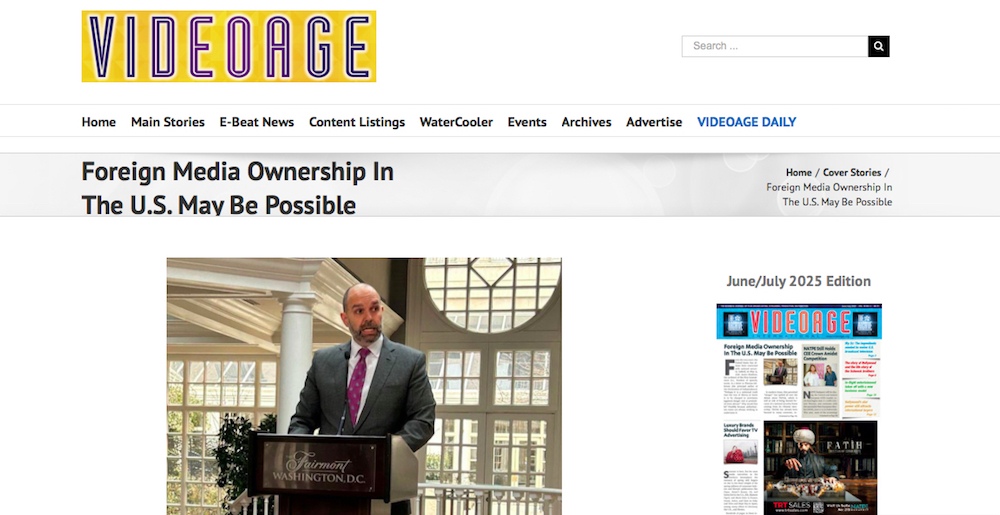According to the Washington, D.C.-based National Association of Broadcasters (NAB), the U.S. Federal Communications Commission (FCC) should take no action in regard to a proposal examining whether to expand foreign broadcasting ownership disclosure requirements.
In effect, for NAB, nothing should change from what was reported in the June/July Issue of VideoAge (“Foreign Media Ownership In The U.S. May Be Possible”), pictured above, alongside a photo of NAB’s president Curtis LeGeyt.
For the FCC, the proposal would formalize the identification of entities holding licenses and authorizations that are controlled by foreign adversaries. However, according to NAB there isn’t any evidence that there are unknown relationships between foreign adversaries and FCC-regulated broadcasting entities, therefore no new rules should be adopted. The U.S. broadcasting trade group’s position is that, “The Commission should continue to rely on its existing processes for approval.”
Under the outline being considered by the FCC, some entities would need to certify that they are not owned by, controlled by, or subject to the jurisdiction or direction of a foreign adversary. And it would require the investor to identify all ownership interests, and that a revocation procedure would be implemented in the event an entity falsely certified or failed to provide ownership information.
NAB agued that the FCC already requires all existing broadcast licensees to submit information about foreign ownership every eight years in their renewal applications, and broadcast ownership rules are specific on what is considered attributable ownership. According to NAB, the proposal would force broadcasters to submit unnecessary paperwork.
NAB also warned that adding another filing obligation — on top of quarterly issues/programs lists, political file uploads, and biennial ownership reports — will place an added burden on broadcasters, particularly small stations with limited staff.
NAB also called on the FCC to align the proposed thresholds for “dominant minority” interests with existing attribution rules for broadcasters, which requires disclosure only for voting interests of five percent or more.
NAB is also concerned about the FCC’s proposed revocation process, which could strip authorizations from entities that file late or inaccurate certifications. It argues such a process should require a more robust procedure — including a hearing before an administrative law judge — for revoking broadcast licenses.
NAB also opposes proposals to expand foreign sponsorship identification rules for leased airtime. Existing rules already require on-air and public file disclosures for programming provided by foreign governmental entities. Requiring broadcasters to investigate or disclose a lessee’s “adversarial” status would exceed statutory authority, and creates undue burdens for local stations that lease time to churches, schools, and small businesses.


Leave A Comment